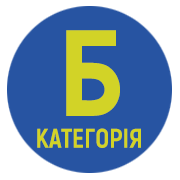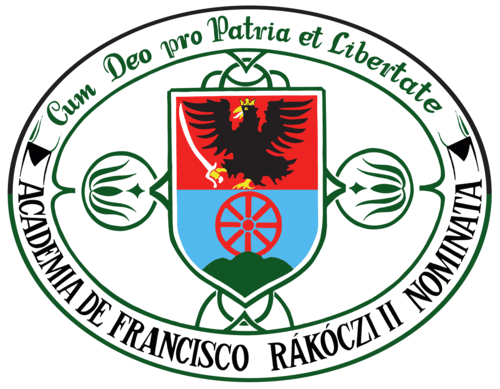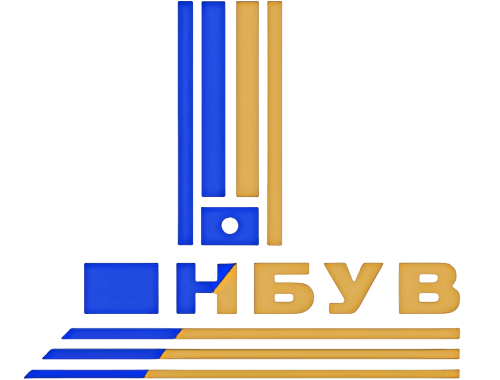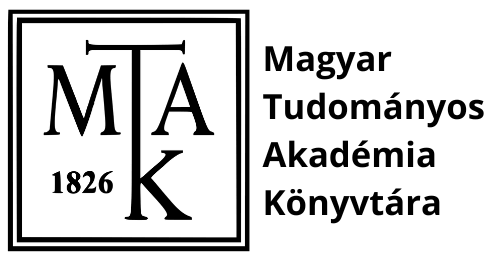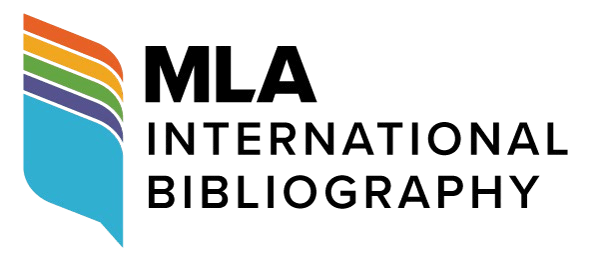A kimondott szavak súlya, avagy összefüggések a nyelv és az erkölcsi nevelés között magyar és német nyelvű példák alapján
DOI:
https://doi.org/10.58423/2786-6726/2024-1-130-151Kulcsszavak:
erkölcs, erkölcsi nevelés, kognitív paradigma, konceptualizáció, fogalmi metafora, концептуалізаціяAbsztrakt
A köztudatban az erkölcs egy vallási, jogi, filozófiai, társadalmi kategória. Az erkölcsiségről ritkán beszélünk nyíltan, nyelvünkben mégis tükröződik erkölcskoncepciónk. A fogalom meghatározó jelentőséggel bír az élet bármely területén hozott döntéseinkben, nyelvi- és nem nyelvi viselkedésünkben egyaránt. A kognitív paradigma szerint a gondolkodás és a nyelv között szoros kapcsolat feltételezhető: a gondolkodás a nyelvben nyilvánul meg, ám a nyelv is hatással van magára a gondolkodás folyamatára. A nyelv, gondolkodás és kultúra összefüggéseit vizsgálva Lakoff‒Johnson (1999) bevezette a gondolkodási relativizmus fogalmát, amely szerint azt állítják, hogy az eltérő metaforahasználat gondolkodásbeli különbségeket okoz. Erre alapozva felvetődik a kérdés, hogy máshogy gondolkodnak- e a különböző nemzetek képviselői egy-egy fogalomról − esetünkben az erkölcsről −, és ez hogyan nyilvánul meg a nyelvükben? Mindezt tovább gondolva, miként érhetők tetten a nyelvben a konceptualizációs folyamatot érintő kultúraspecifikus eltérések? Jelen tanulmányban a fenti kérdésekre keressük a választ. Az elemzés a Lakoff (1996, 2002), illetve Lakoff‒Johnson (1999) által felépített erkölcskoncepcióra támaszkodik, amely ugyan az amerikai társadalom értelmezési folyamatát írja le, bizonyos részei azonban közel univerzálisnak mondhatók, ebből kifolyólag más nyelvek vizsgálata során is szolgálhat hasznos megállapításokkal. Az erkölcsiség fogalmának kialakulása a családi nevelés, családon belüli nyelvi- és nem nyelvi interakciók révén kezdődik el. Lakoff (1996) a nyugati politikai erkölcsöt vizsgálva azt a következtetést vonja le, hogy alapvetően két családmodell van, így két külön- böző erkölcsfelfogásról beszélhetünk. A konzervatív gondolkodásúakra a szigorú apa modell, míg a liberálisokra a gondoskodó szülő modell jellemző. Mindkét modellben különböző erkölcsfogalmak élveznek prioritást, és eltérően kezelik az ’erkölcs’ fogalmát. Kutatásunk során elsősorban a metaforikus konceptualizációt vizsgáltuk meg magyar és német élőnyelvi példákon, összevetve azokat az angol nyelvi példák alapján felépített erkölcskoncepciókkal. Megállapítottuk, hogy a vizsgált nyelvi példák alapján nem rajzolódik ki a Lakoff (uo.) által felvázolt teljes metaforarendszer, annak bizonyos elemei viszont jól példázzák a két nyelvben fellelhető családi erkölcsök közötti hasonlóságokat és eltéréseket.
Hivatkozások
Banćzerowski, Janusz, 1999. A kognitív nyelvészet alapelvei. [The Principles of Cognitive Linguistics]. Magyar Nyelvőr 123/1: pp. 78‒87. (In Hungarian)
Banćzerowski, Janusz, 2000. A nyelv és a nyelvi kommunikáció alapkérdései. [The Fundamentals of Language and Linguistic Communication]. Budapest: ELTE, BTK. (In Hungarian)
Farkas Orsolya, 2012. Az állam fogalmának konceptualizációja a magyar politikában az elmúlt tizenegy év országértékelő beszédei alapján, avagy van-e „magyar csavar”. [The Conceptualization of the State in Hungarian Politics Based on Eleven Years of State of the Nation Addresses: Is There a 'Hungarian Twist'?]. In: Voigt Vilmos ‒ Balázs Géza szerk. Nyelv és kultúra – Kulturális nyelvészet. Magyar szemiotikai tanulmányok, 25–26. kötet. Budapest. 114‒118. o. (In Hungarian)
Haidt, Jonathan, 2001. The emotional dog and its rational tail: A social intuitionist approach to moral judgment. Psychological Review 108/4: pp. 814-834. https://doi.org/10.1037/0033-295X.108.4.814
Kövecses Zoltán, 2005. A metafora. Gyakorlati bevezetés a kognitív metaforaelméletbe. [Metaphor: A Practical Introduction to Cognitive Metaphor Theory]. Budapest: Typotex. (In Hungarian)
Kövecses Zoltán, 2009. Az angol nyelv helyzete és a magyar politika. Azaz mit taníthat nekünk magyaroknak a kognitív tudomány? [The Status of the English Language and Hungarian Politics: What Can Cognitive Science Teach Us Hungarians?] In: Frank Tibor ‒ Károly Krisztina szerk. Anglisztika és amerikanisztika. Magyar kutatások az ezredfordulón. Budapest: Tinta Könyvkiadó. 65‒71. o. Online elérhető: https://dtk.tankonyvtar.hu/xmlui/bitstream/handle/123456789/8856/Anglisztika
_es_amerikanisztika.pdf?sequence=1 (Accessed: 25 April 2013). (In Hungarian)
Kövecses Zoltán, 2020. Extended conceptual metaphor theory. Cambridge: Cambridge University Press. https://doi.org/10.1017/9781108859127
Lakoff, George, 1995. Metaphor, morality and politics, or, why conservatives have left liberals in the dust. http://www.wwcd.org/issues/Lakoff.html (Accessed: 2019. május 30.). https://www.jstor.org/stable/40971091
Lakoff, George, 1996. Moral politics. Chicago: University of Chicago Press. DOI: 10.7208/chicago/9780226411323.001.0001
Lakoff, George, 2002. Moral politics: How liberals and conservatives think. Chicago: University of Chicago Press. https://doi.org/10.7208/chicago/9780226471006.001.0001
Lakoff, George ‒ Johnson, Mark, 1980. Metaphors we live by. Chicago: University of Chicago Press. DOI: 10.7208/chicago/9780226470993.001.0001
Lakoff, George ‒ Johnson, Mark, 1999. Philosophy in the flesh. New York: Basic Books.
Lechner Ilona, 2015. Politikai erkölcs ‒ és ami mögötte van ‒ a kárpátaljai magyar nyelvű sajtó anyagán vizsgálva. [Political Ethics - and What Lies Behind It - Examined Through the Hungarian-Language Press in Transcarpathia.]. In: Pletl Rita és Nagy Imola-Katalin szerk. Nyelvi sokszínűség Európában. Kolozsvár: Scientia Könyvkiadó, 67–77. o. (In Hungarian)
Lechner Ilona, 2023. Erkölcs és nyelvészet. Az erkölcsfogalom metaforikus konceptualizációja a magyar és a német nyelvben. [Morality and Linguistics: The Metaphorical Conceptualization of Morality in Hungarian and German]. Beregszász
– Ungvár: II. RFKMF – “RIK”-U Kft. (In Hungarian)
Pragglejaz Group, 2007. MIP: A method for identifying metaphorically used words in discourse. Metaphor and Symbol, 22/1: pp. 1‒39. DOI: 10.1080/10926480709336752
Steen, Gerard J. ‒ Dorst, Aletta G. ‒ Herrmann, J. Berenike ‒ Kaal, Anna A. ‒ Krennmayr, Tina ‒ Pasma, Trijntje, 2010. A method for linguistic metaphor identification. From MIP to MIPVU. Amsterdam, Philadelphia: John Benjamins Publishing Company. https://doi.org/10.1075/celcr.14
Tramowsky, Nadine A ‒ Groß, Jorge, 2015. Moralvorstellungen von Lernenden und ihre metaphorische Strukturierung. [The moral concepts of learners and their metaphorical structuring]. https://www.bcp.fu- berlin.de/biologie/arbeitsgruppen/didaktik/Erkenntnisweg/2015/Tramowsky.pdf (Accessed: 14 November 2018). (In German)
Downloads
Megjelent
Hogyan kell idézni
Folyóirat szám
Rovat
License
A szerzők megtartják a szerzői jogokat, és a folyóiratnak adják az első közlés jogát. A közlemény a Creative Commons 4.0 Nemzetközi Licenc (CC BY 4.0) feltételei szerint kerül közzétételre, amely lehetővé teszi mások számára annak megosztását és terjesztését, feltéve, hogy megfelelően hivatkoznak a szerző(k)re és a tanulmány vagy recenzió első megjelenésére ebben a folyóiratban.

